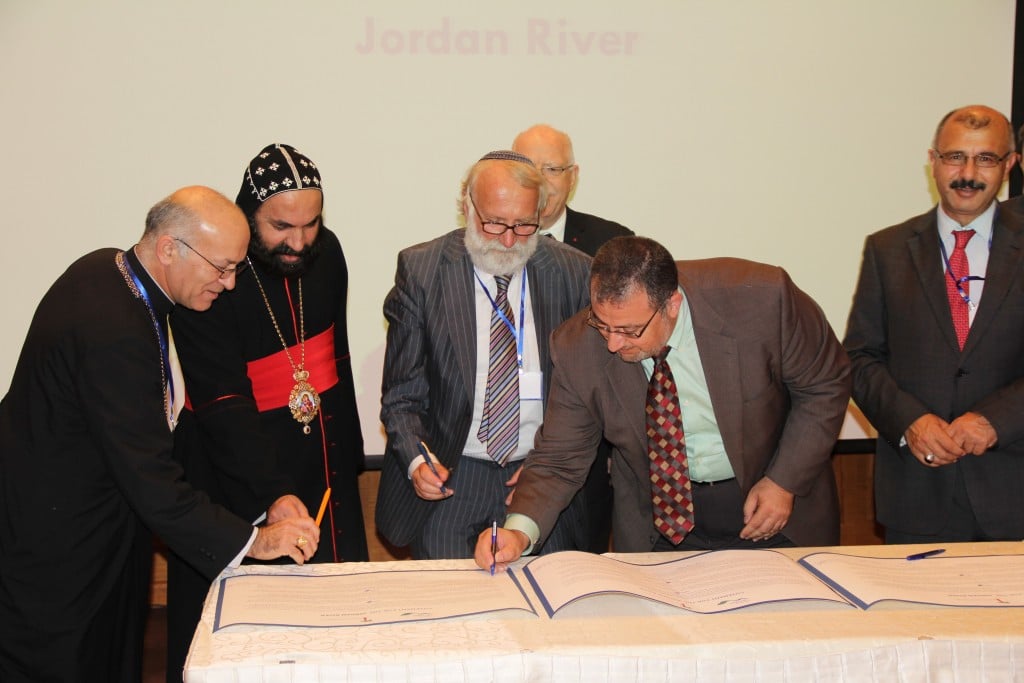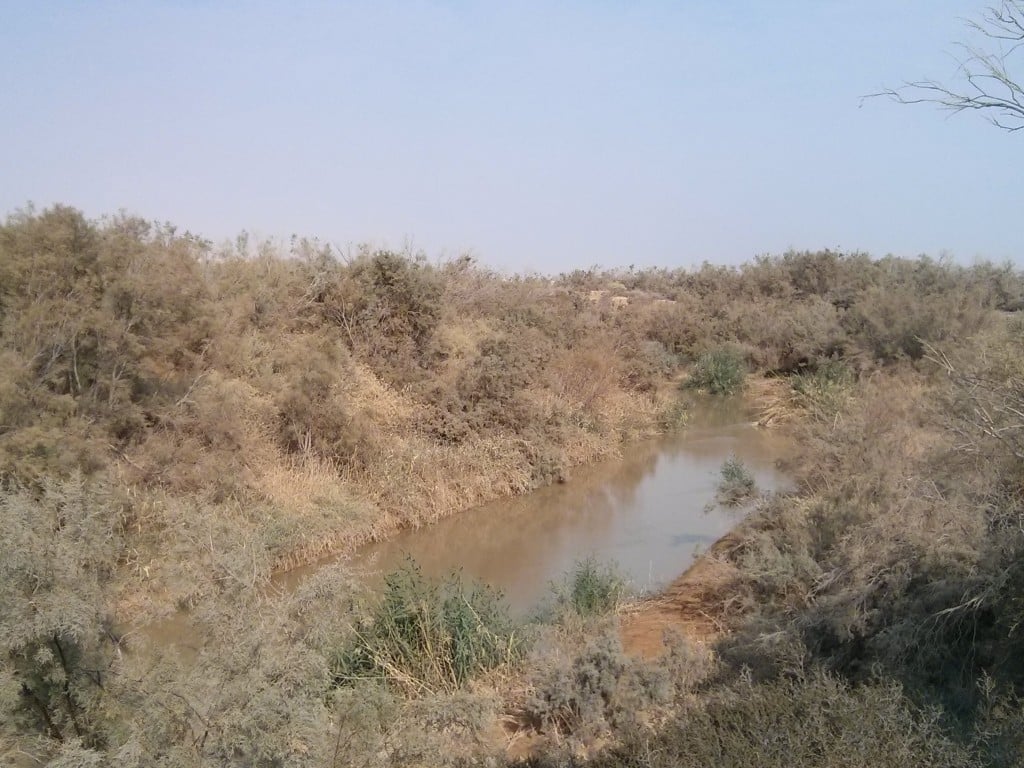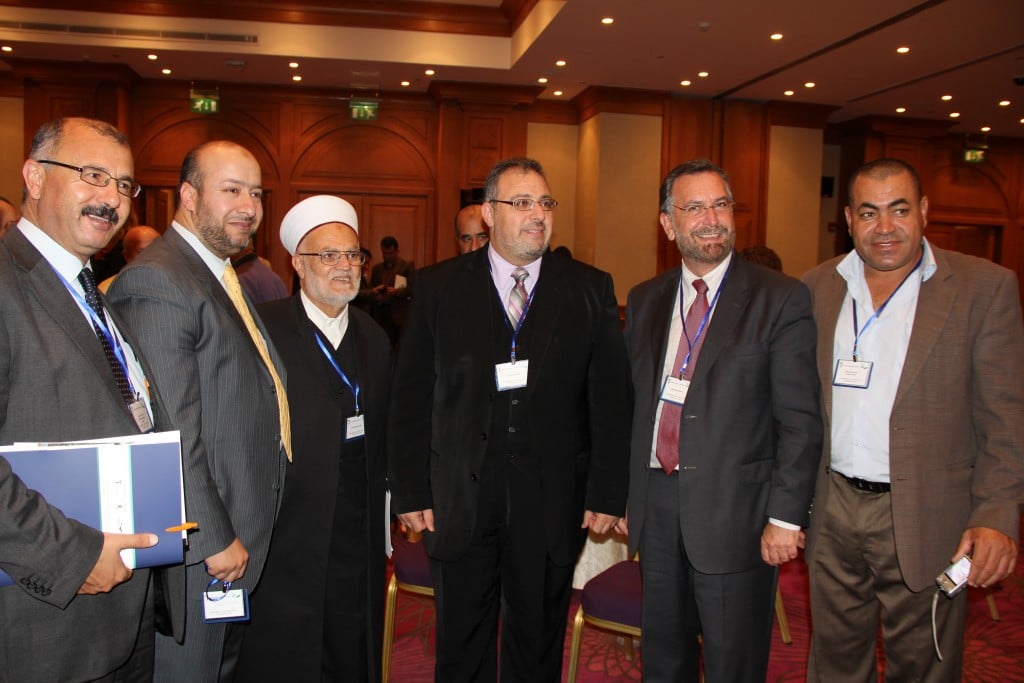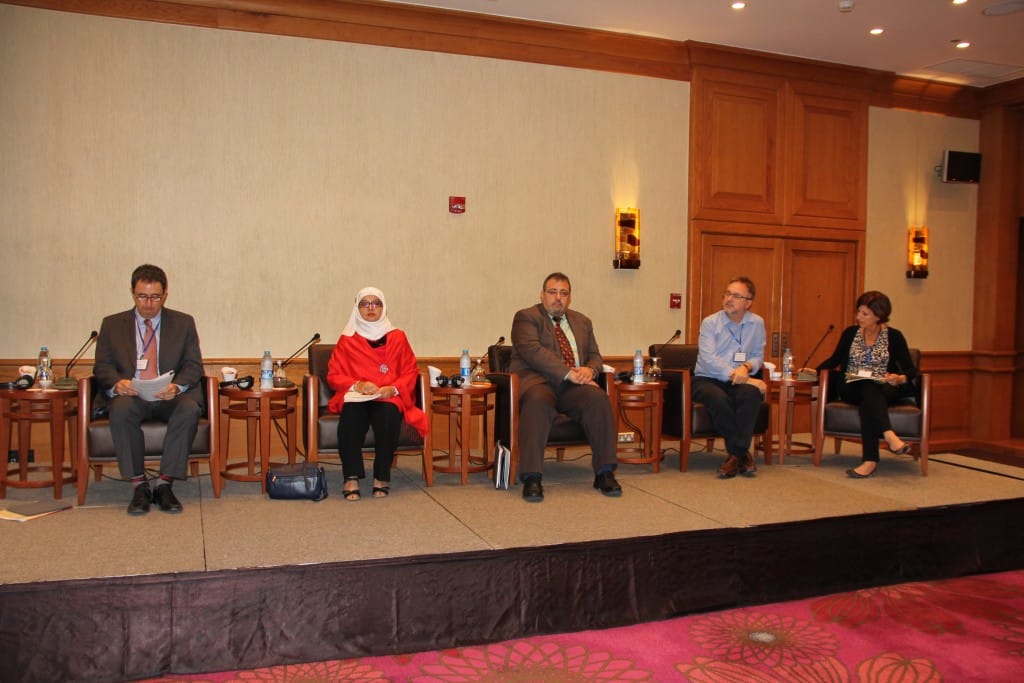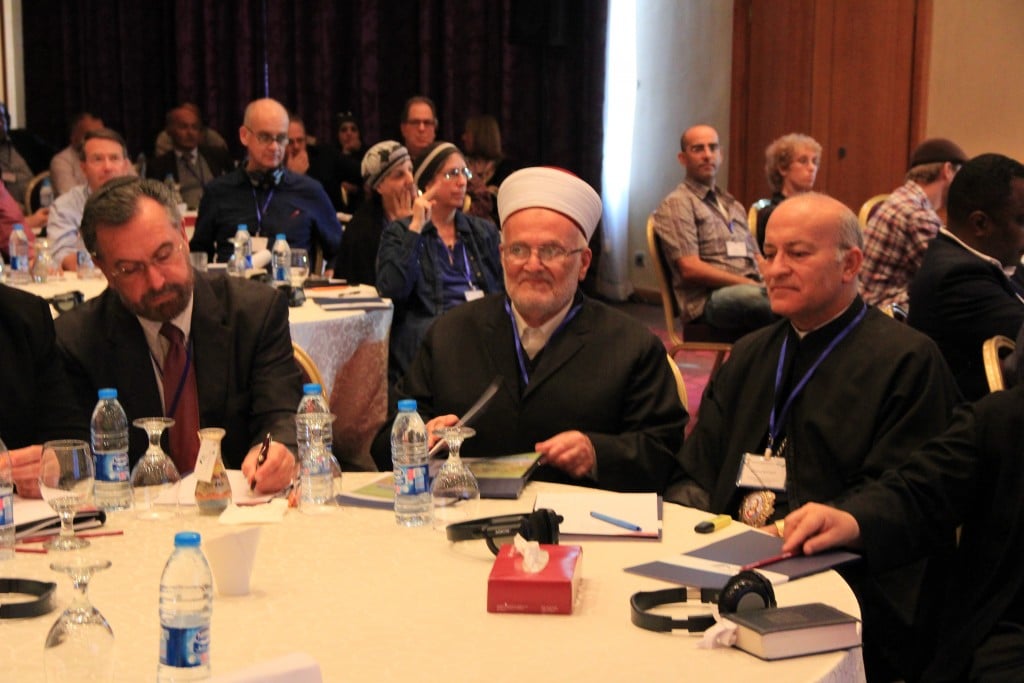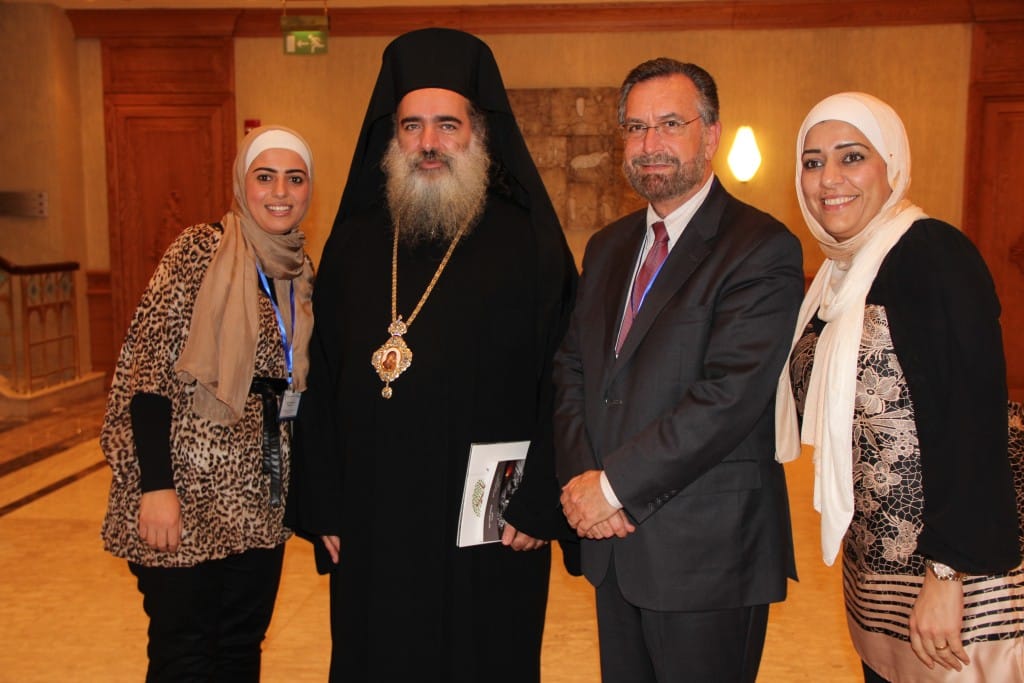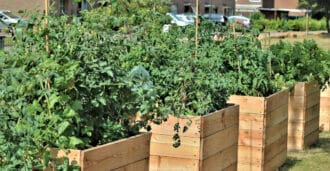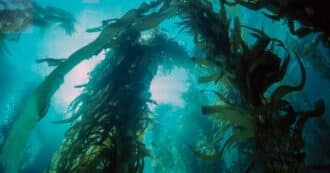By Neria Greniman and Rachel Winner for the Interfaith Center for Sustainable Development
Friends of Earth Middle East (FoEME) hosted a regional conference on November 10-12, 2013, inviting clerics from Judaism, Christianity, and Islam to address the state of the lower Jordan River. I (Neria) attended the conference as a staff member of The Interfaith Center for Sustainable Development. Nearly 300 Israelis, Palestinians, and Jordanians showed up for the event, including a number of international academics, students, and non-profit and religious representatives.
As a holy, historical site for all three traditions and an imperative natural resource for Israelis, Palestinians, and Jordanians, the Jordan River has transformed over time from a flourishing and revered wetland into a contaminated, trickling canal. According to FoEME, 96% of the river is diverted for agricultural and domestic use, and the remaining water is laden with sewage and agricultural runoff.
Distinguished rabbis, priests, and imams took the stage at the commencement and spoke with great passion on the importance of the Jordan River in their respective faiths. Atallah Hanna, the Archbishop of Sebastia, Greek Orthodox Patriarchate of Jerusalem, highlighted that despite our differences, we are truly all one family in our common use and protection of the Jordan River.
Rabbi David Rosen, International Director of Interreligious Affairs of the American Jewish Committee (AJC) and board member of the Interfaith Center for Sustainable Development, acknowledged the motif of water in the Jewish daily Shema prayer, and the importance of treating the land with care. One particularly fiery speech was given by Dr. Yahya Hendi, Muslim Chaplain at Georgetown University. Dr. Hendi opened by asserting that women’s voices in the environmental movement and society are key to promoting environmental stewardship. He offered an image of religious leaders working together to save the Jordan River, of floating down the river in a modern Noah’s Ark. Rather than presenting the river’s health as a crisis, he framed the work that lies ahead as a vehicle for collaboration and peace that could transform the region. FoEME provided all participants with a toolkit – a compilation of faith-based resources for communities of different religious backgrounds to engage in promoting the rehabilitation of the Jordan River. The organization also offered more comprehensive sourcebooks with religious texts, songs, essays and other materials to help leaders motivate and lead their communities in the project and in general environmental practices.
The religious leaders were invited to sign “The Jordan River Covenant,” to ask regional governments to act on behalf of the River’s rejuvenation. Once the covenant receives wider circulation and more signatures, it will be sent to President Mahmoud Abbas of the Palestinian Authority, Jordan’s King Abdullah II, and Israel’s Prime Minister Binyamin Netanyahu. The next morning, the group traveled to the Jordan River to the historical site where Jesus was baptized by John. The field trip was a mixture of sadness and hope. The toxic river was a sorry sight, but FoEME informed the group that the Israeli water authority has recently begun to release previously diverted fresh water back into the river and has an ultimate goal of 30 million cubic meters annually. A new Israeli sewage treatment plant will soon be opened that will stop the flow of Israel’s wastewater into the river. Finally, the saline spring that runs into the River will also soon be desalinated.
Together, FoEME and religious leaders and communities from across the region are using faith as a bridge over the Jordan River, and flooding its murky basin with hope. It was meaningful to attend the conference on behalf of The Interfaith Center for Sustainable Development and to show our support for this important project.
Photos by Neria Greniman and FoEME
